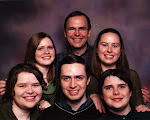The Pope is in the Philippines this week. To understand why, we have to go back nearly 500 years to 1521, when Ferdinand Magellan landed his feeble boat on the central Philippine island of Cebu. Magellan lost his life during an altercation with the natives, but the rest of his crew were able to complete the first voyage around the world. Soon, Spanish conquistadors–explorers and merchants, arrived claiming the islands for Spain in the name of Philip II, who later became king of Spain.
The Filipinos resented the Spanish for their oppressive ways, but readily adopted their religion – Roman Catholicism. Today, about 80% claim allegiance to the Catholic Church (about 12% are Christian, and the remainder are mostly Muslims), making the Philippines the 3rd largest Catholic country in the world (after Brazil and Mexico) and the only Catholic country in Asia.
The secular world doesn’t see any difference between Catholicism and Christianity. Secularists don’t believe in God anyway, so the differences really don’t matter to them. But for those of us who seek to follow Christ (which is what Christianity literally means), the contrasts are enormous.
The primary difference is our source of authority. Catholics claim the Roman Church, with the Pope as the supreme head, as their authority, along with all their dogmas, decrees, and traditions handed down for the past 1,500 years. Christians claim the Bible as our source of authority, believing it to be inspired by the Holy Spirit. Although we sometimes bicker about how we apply parts of the Scripture, we still agree that it’s our sole authority.
The Bible explains that, because of our sin, God has removed Himself from us, for He does not tolerate sin. He is holy. The punishment for even the smallest sin is death – eternal death in hell. That’s how holy God is. But God is equally loving, and sent His Son to pay our death penalty on the cross. For those who confess and repent of their sinfulness, and who believe Jesus paid the death penalty our sins deserve, God will pardon and ‘adopt’ by placing His Spirit within them, who begins the process of making us become more Christ-like, or Christian. Eternal life is given to us as our inheritance, not because of anything we did, but because of what God did for us.
The Roman Catholic also sees himself separated from God because of his sins. But he believes that there is enough goodness in him to merit God’s favor by following the sacraments of the Catholic Church and doing good deeds. For example, this week millions of Filipinos are literally climbing over one another to get a glimpse of the Pope while he is here, hoping that such devotion will move God to heal their grandmother, secure a job, pass an exam, experience financial gain, or some other benefit. The Catholic seeks to appease God himself, and earn his salvation, something the Bible says we cannot do.
The Bible also says that God is opposed to the proud – those who believe they are good enough to earn their way to heaven, but He gives grace to the humble – those of us who know that our hearts are dark as night and as dirty as the filthiest sewer. “Amazing grace, how sweet the sound, that saved a wretch like me.” Plus, there is an eternal difference in the behavior of those who are governed by outside rituals and sacraments, verses those who are governed by God’s internal Spirit who is working to conform us to the image of His Son.
There are many other differences between Catholics and Christians, but none matter more than how we come to God: dependent on our vain prideful efforts, or dependent on God’s loving mercy. The difference matters a whole lot to God. It has been my joy these past 30 years to see Filipinos who leave the fear and uncertainty of their religion, for the joy and security of knowing Christ (Christian) and the internal heart-change that only His Spirit can render.
Subscribe to:
Post Comments (Atom)




































No comments:
Post a Comment